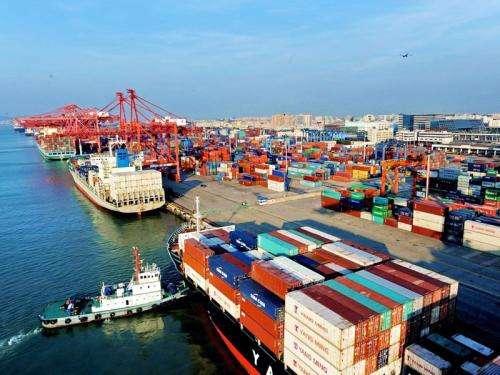
BEIJING, Jan. 11 (Xinhua) -- China is expected to see bumper harvest of its Free Trade Area (FTA) strategy in 2018. So far, the country has signed a total of 16 free trade agreements, benefiting 24 countries and regions, which is likely to further expand in 2018.
In 2017, China signed free trade agreements with Georgia and Maldives, FTA upgrading agreement with Chile, and the second Amendment to the Asia-Pacific Trade Agreement with India, South Korea, Sri Lanka, Bangladesh, and Laos.
Besides, China launched joint feasibility studies on free trade agreement with Panama, Mongolia and Pakistan, and joined hands with Switzerland on studying how to upgrade the bilateral free trade agreement.
Furthermore, MOFCOM has basically completed the negative list of cross-border services, and will gradually promote the service trade and investment negotiations of free trade agreements based on the negative list, Zhang Shaogang, senior official with the Ministry of Commerce of the People’s Republic of China (MOFCOM), introduced at the Commercial Working Conference.
“The year of 2018 will be see bumper harvest for FTA development, as there will be negotiations on 10 new FTAs and joint feasibility studies of another 10 FTAs,” said Zhang
For the next step, the MOFCOM will further promote the negotiations of the Regional Comprehensive Economic Partnership (RCEP), as well as the talks on free trade agreement with Israel, Sri Lanka, the Gulf Co-operation Council (GCC) and Pakistan.
In the meanwhile, the Ministry will conduct joint feasibility studies on free trade agreement or FTA upgrading together with Panama, Palestine, Mongolia, Switzerland and Peru, and push forward a new round of negotiation on the Asia-Pacific Trade Agreement.
Zhang also expects solid progress to be achieved on the negotiations of the RCEP, an FTA scheme of the 10 ASEAN member countries and its six FTA partners - China, Australia, India, Japan, the Republic of Korea and New Zealand.
"China has vowed to open wider to the world, and accelerating the development of FTAs will be a crucial part of the country's opening-up," said Bai Ming, a researcher with the Chinese Academy of International Trade and Economic Cooperation. (Edited by Ma Xin, Wang Yaguang, maxin11@xinhua.org)




 A single purchase
A single purchase









